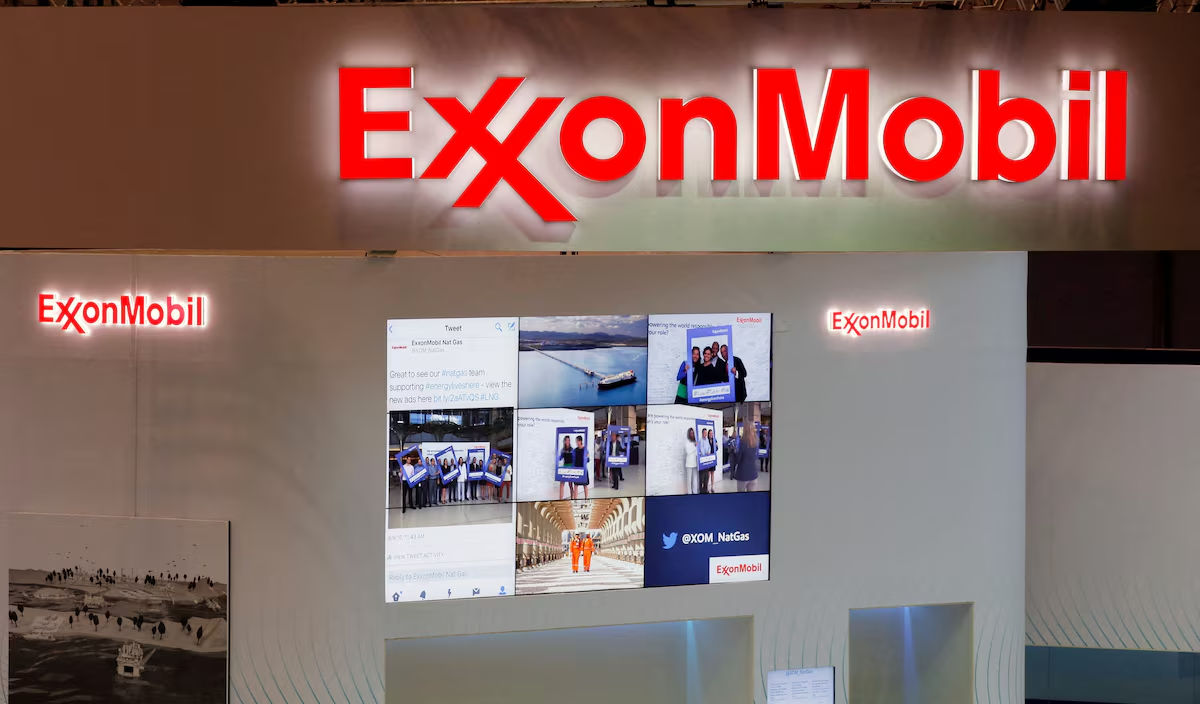Jack Williams, senior vice president of ExxonMobil, told Reuters that the company is pausing two projects worth 118 million USD in Rotterdam (Netherlands) and Antwerp (Belgium). The projects were designed to process 80,000 tons of plastic waste annually.
"We want to make these investments. The only thing holding us back is the draft policy from Europe," Williams said.
 |
Exxon Mobil's booth at Gastech, the world's largest gas industry exhibition, in Chiba, Japan, 4/4/2017. Photo: Reuters |
Exxon Mobil's booth at Gastech, the world's largest gas industry exhibition, in Chiba, Japan, 4/4/2017. Photo: Reuters
Two months ago, the European Commission (EC) held a public consultation on a new draft regulation concerning recycled content in single-use plastic bottles. This aimed to establish a common method for calculating and verifying recycled content.
The draft policy prioritizes mechanical recycling, claiming it is less polluting and more energy-efficient than chemical recycling.
Mechanical recycling involves washing, shredding, melting, and pelletizing plastic, which weakens the material compared to virgin plastic. This limits the number of times plastic can be recycled and requires the addition of virgin plastic and chemicals to create a final product.
Chemical recycling converts plastic into basic chemicals, creating new materials with qualities similar to virgin plastic. Critics argue that this method is energy-intensive, costly, and could slow the transition away from plastic use.
According to Williams, the EU draft creates an uneven playing field by discriminating against petrochemical companies using chemical recycling technologies.
The consultation period for the draft ended last month. Other companies in the industry, including Neste (Finland) and Loop Industries (Canada), share Exxon's concerns.
In addition to the recycling draft, Williams also called for the EU to repeal the Corporate Sustainability Due Diligence Directive (CSDDD). This directive requires large companies to check for forced labor or environmental damage in their supply chains. Williams criticized these provisions as complex, costly, and sometimes impossible to implement outside the EU.
The directive also requires companies to commit to net-zero emissions across their supply chains (Scope 3 emissions). Williams argued this is unattainable due to the lack of necessary policies and technologies in many industries. "The only option is to reduce or cease operations," he said.
Bloomberg noted that ExxonMobil's public criticism is unusual, as it could attract the attention of former US President Donald Trump. Businesses that supported Trump have tried to link the CSDDD to trade negotiations between the US and Europe.
Last month, a framework trade agreement between the EU and the US stated that Europe would strive to ensure the directive does not "create undue restrictions on transatlantic trade."
ExxonMobil clarified that the pause on the plastic recycling projects is temporary, pending clarification of the EU's draft on "recycled content." The recycling facilities are currently in the planning stages, with no construction having begun.
Bao Bao (Reuters, Bloomberg, Eutoday)












